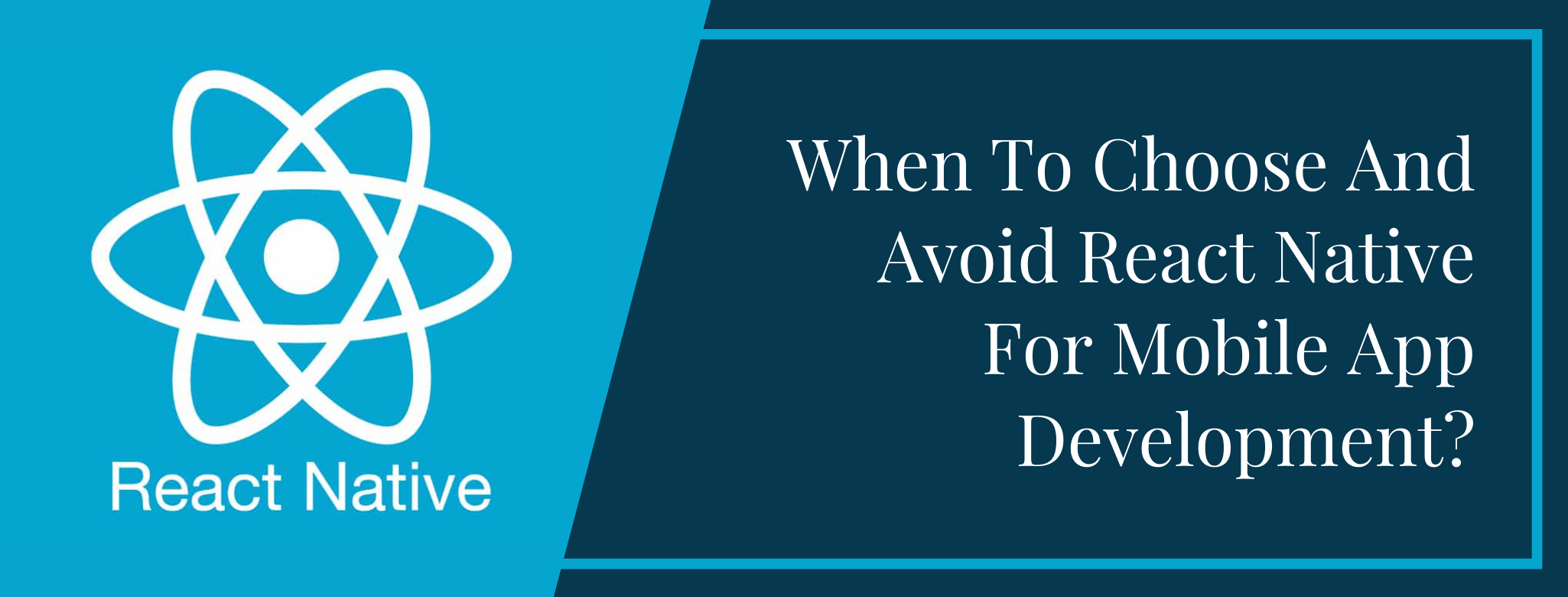React Native is an immensely growing framework for various mobile solutions. From being an open-source platform to let the developers enjoy its easy-to-use reusable codes, there are innumerable reasons to choose the React Native Mobile App Development Services. Well, before you go for it, we would suggest you read this article to understand when to choose and avoid React Native for Mobile App Development. Additionally, you will get some insights on the benefits of choosing React Native over any other framework. So, let’s have a quick look!
If Community Matters, Choose React Native:
As we have mentioned earlier, React Native is an open-source platform, which means that within the community, the documentation associated with the technology is accessible to all for referential purposes. The fundamental advantage of using such an open-source platform is that it lets you quickly avail assistance, in case you get stuck with some major or minor technological glitches. Eventually, a community-driven platform like React Native is known widely for its increasing demand even though JavaScript Developers are still ruling the market.
When You Are in Need of Pre-Built Components and Reusable Codes:
Along with that, more than 80 percent of the React Native Code could be used again on platforms like iOS and Android. It is cost-efficient and time-saving for newly-emerged companies who are planning to create a mobile app. The open-source library includes an excellent pre-built component which eventually speeds up the process of mobile app development.
When Simple User-Interface is What You Need:
React Native ensures an extremely simplified user-friendly interface for the clients. As compared to AngularJS or Meteor JS, React Native looks more like a JavaScript library than a framework. One of the essential features of mobile app development is to properly create a sequence of actions, which could be easily done with the help of React Native. Along with that, the user interface is more responsive, takes less time to load, and ensures a smooth and hassle-free development process.
When You Want Support of Third-Party Plug-ins:
The advanced React Native App does lack some of the major components in the core framework. To fill this gap, it also provides two kinds of third-party plug-ins; such as Native Modules and Javascript Modules. A few popular third-party plug-ins for React Native are React Native Drawer, React Native Gifted, React Native Router Flux, and many others.
When Modular Architecture is Your Priority:
The intuitive modular architecture helps the developers to upgrade and update the applications without spending too much time and effort. The prominent modules of React Native could be used again both with the mobile APIs and the web.
Along with the above-mentioned exclusive features, it also includes an attractive coding structure, sufficient ready-to-use solutions libraries, and many others.
When to Avoid ‘React Native’ For Mobile App Development?
Regardless of the breakthrough performance of React Native in the world of mobile application development, there are a few glitches too. Despite its extraordinary performance, it could not be used to build all kinds of mobile applications.
When You Are in Need of Matured Framework:
The React to Native framework is growing too fast, as every day; there are new updates that demand instant changes leading to chaotic situations for the developers. Many times, the developers are supposed to add additional code for components that are not compatible with the React Native. The flexible and mature native platforms like the UICollection view for iOS and RecyclerView for Android could never be compared to the FlatList Library of React Native.
When You Are Looking For a Highly Secured Language:
Despite extreme flexibility and engaging programming language, the Native App is a monotonous language. There are many cases of safety issues which make it problematic to scale. As a result of this, the engineers have to rely on other integrations such as TypeScript and flow.
When You Are Looking For Over-the-Top User-Interface:
If you are looking forward to developing an app that requires great interactions, animations, easy screen transitions, or any kind of complex gestures, then definitely React Native is not a good option for you. The Gesture Responder System in React Native keeps track of all gestures of the app, but when it comes to complex gestures, you might encounter a few glitches. And, the developers do face technical challenges, especially because the touch subsystems of the Android and iOS are too different for using a unified API.
So, every coin has two sides, and quite similar is the case with the React Native framework. In most cases, you might find this the most suitable and reliable app development option; however, in some situations, React Native can turn out to be the wrong choice. In this article, we have tried to analyze and answer when to choose and avoid React Native Mobile App Development Services. And, despite all, it is possible to face a few challenges if you are technically not-so-enriched, and for that, we have a solution too! You are recommended to simply hire any mobile app development company such as Auxesis Infotech, especially because it ensures each client with top-quality mobile app development services along with quick assistance.


























